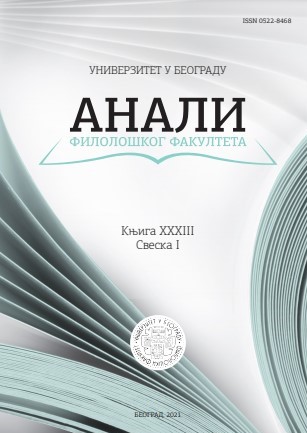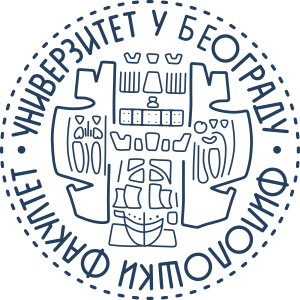VOT as a phonetic cue of foreign accentedness – a case study approach of five Austrian students of English
DOI:
https://doi.org/10.18485/analiff.2021.33.1.2Кључне речи:
foreign accentedness, VOT, phonetic cues, segmental features, plosives, voicing, English pronunciation, L2 English speech, Austrian GermanАпстракт
Foreign accentedness in L2 speech has been shown to be a remarkably salient feature. Numerous phonetic studies demonstrated that listeners are highly sensitive to foreign-accented speech in their interlocutors (Derwing/Munro, 2009). Yet it remains to be established which phonetic cues are dominant for perceived foreign accentedness. Studies have brought different outcomes in this regard, ranging from segmental features of consonants and vowels (e.g. Saito/Trofimovich/Isaacs, 2016; Gao/Weinberger, 2018; Labov/Ash/Boberg, 2006) over different prosodic features (e.g. Mareüil/Vieru-Dimulescu, 2006). The current study focuses on the voicing contrast in bilabial and alveolar plosives in the speech of five Austrian students of English, who are investigated in the form of a case study. It will be examined how far the measured VOT values in their L2 English speech deviate from British English VOT values. VOT was measured for the voiceless and voiced bilabial and alveolar plosives /p b t d/. The plosives chosen for analysis were assumed to be especially problematic for Austrian German speakers as voicing is realized differently in English and German. Correlations between VOT and foreign accentedness will be drawn based on the students’ final grades in an English pronunciation class they were all enrolled in at the time of the study.
Downloads
Downloads
Објављено
Број часописа
Рубрика
Лиценца

Овај рад је под Creative Commons Aуторство-Дели под истим условима 4.0 Интернационална лиценца.
Authors who publish with this journal agree to the following terms:
- Authors are confirming that they are the authors of the submitting article, which will be published (print and online) in the journal Anali filološkog fakulteta by the Faculty of Philology, University of Belgrade (Faculty of Philology, Studentski trg 3, 11000 Belgrade, Serbia). Author’s name will be evident in the printed article in the journal. All decisions regarding layout and distribution of the work are in hands of the publisher.
- Authors guarantee that the work is their own original creation and does not infringe any statutory or common-law copyright or any proprietary right of any third party. In case of claims by third parties, authors commit their self to defend the interests of the publisher, and shall cover any potential costs.
- Authors retain copyright and grant the journal right of first publication with the work simultaneously licensed under a Creative Commons Attribution-ShareAlike 4.0 International License that allows others to share the work with an acknowledgement of the work's authorship and initial publication in this journal.
- Authors are able to enter into separate, additional contractual arrangements for the non-exclusive distribution of the journal's published version of the work (e.g., post it to an institutional repository or publish it in a book), with an acknowledgement of its initial publication in this journal.
- Authors are permitted and encouraged to post their work online (e.g., in institutional repositories or on their website) prior to and during the submission process, as it can lead to productive exchanges, as well as earlier and greater citation of published work.





